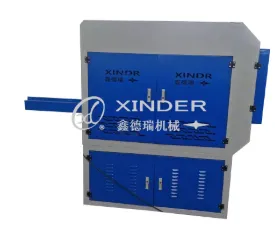-
 8613931787312
8613931787312 -
 Botou Industrial Zone on the east side of National Highway 104, Botou City, Hebei Province
Botou Industrial Zone on the east side of National Highway 104, Botou City, Hebei Province
- Afrikaans
- Albanian
- Amharic
- Arabic
- Armenian
- Azerbaijani
- Basque
- Belarusian
- Bengali
- Bosnian
- Bulgarian
- Catalan
- Cebuano
- Corsican
- Croatian
- Czech
- Danish
- Dutch
- English
- Esperanto
- Estonian
- Finnish
- French
- Frisian
- Galician
- Georgian
- German
- Greek
- Gujarati
- haitian_creole
- hausa
- hawaiian
- Hebrew
- Hindi
- Miao
- Hungarian
- Icelandic
- igbo
- Indonesian
- irish
- Italian
- Japanese
- Javanese
- Kannada
- kazakh
- Khmer
- Rwandese
- Korean
- Kurdish
- Kyrgyz
- Lao
- Latin
- Latvian
- Lithuanian
- Luxembourgish
- Macedonian
- Malgashi
- Malay
- Malayalam
- Maltese
- Maori
- Marathi
- Mongolian
- Myanmar
- Nepali
- Norwegian
- Norwegian
- Occitan
- Pashto
- Persian
- Polish
- Portuguese
- Punjabi
- Romanian
- Russian
- Samoan
- scottish-gaelic
- Serbian
- Sesotho
- Shona
- Sindhi
- Sinhala
- Slovak
- Slovenian
- Somali
- Spanish
- Sundanese
- Swahili
- Swedish
- Tagalog
- Tajik
- Tamil
- Tatar
- Telugu
- Thai
- Turkish
- Turkmen
- Ukrainian
- Urdu
- Uighur
- Uzbek
- Vietnamese
- Welsh
- Bantu
- Yiddish
- Yoruba
- Zulu
The Applications and Importance of Laser Welding in Modern Manufacturing
Laser welding is a high-precision technique that is transforming the way industries join materials, especially metals. From electronics to automotive and aerospace, laser welding offers unmatched speed, accuracy, and quality. This article explores what laser welding is used for, its equipment, and the role of laser welding machine suppliers in the industry.

What Is Laser Welding Used For?
Laser welding is primarily used for joining metal parts with high precision and minimal heat distortion. It is widely applied in industries such as:
Automotive: For welding body components, battery cells in EVs, and exhaust systems.
Aerospace: To assemble lightweight, high-strength components with fine tolerances.
Medical Devices: Used to create clean, precise welds in surgical instruments and implants.
Electronics: For micro-welding tasks like sensor connections and circuit boards.
Jewelry and Watchmaking: Allows for detailed repairs and delicate assemblies.
The versatility of laser welding machines makes them ideal for both mass production and customized applications.
Understanding Laser Welding Equipment
Laser Welding Equipment consists of a high-power laser source, a delivery system (often fiber optics), and a control interface. Depending on the application, it may include:
Fiber lasers (for deep penetration and speed)
CO₂ lasers (for non-metal materials)
Nd:YAG lasers (for pulsed operations)
These systems can be automated and integrated with robotic arms for complex manufacturing environments. Choosing the right laser welding machine depends on the material, thickness, required precision, and production volume.
Choosing Reliable Laser Welding Machine Suppliers
The effectiveness of a laser welding system largely depends on the quality and reliability of the supplier. Top laser welding machine suppliers offer:
Technical consultation and customization options
Reliable after-sales support and maintenance
Training for operators
Integration assistance with existing manufacturing lines
Partnering with reputable suppliers ensures long-term productivity, safety, and efficiency in laser welding applications.
-
Understanding Seam Welding Technology: Applications and Equipment OverviewNewsAug.15,2025
-
The Rise of Automation in Welding: Enhancing Precision and ProductivityNewsAug.15,2025
-
Revolutionizing Industrial Welding with Automatic Seam Welding TechnologyNewsAug.15,2025
-
Precision and Efficiency in Metal Packaging: The Role of Can Welding MachinesNewsAug.15,2025
-
Advancing Metal Joining Technologies with Laser Welding and Soldering SolutionsNewsAug.15,2025
-
The Rise of Laser Welding: Precision Meets Power in Modern MetalworkNewsAug.06,2025
-
Streamlining Industrial Packaging: The Power of Barrel Production LinesNewsAug.06,2025
-
 Pneumatic Handle Welding MachineSep . 13, 2024
Pneumatic Handle Welding MachineSep . 13, 2024 -
 Fully Automatic Kaiping Production LineOct . 17, 2024
Fully Automatic Kaiping Production LineOct . 17, 2024 -
 Fully Automatic Metal Bucket Lifting HeadphonesSep . 14, 2024
Fully Automatic Metal Bucket Lifting HeadphonesSep . 14, 2024

